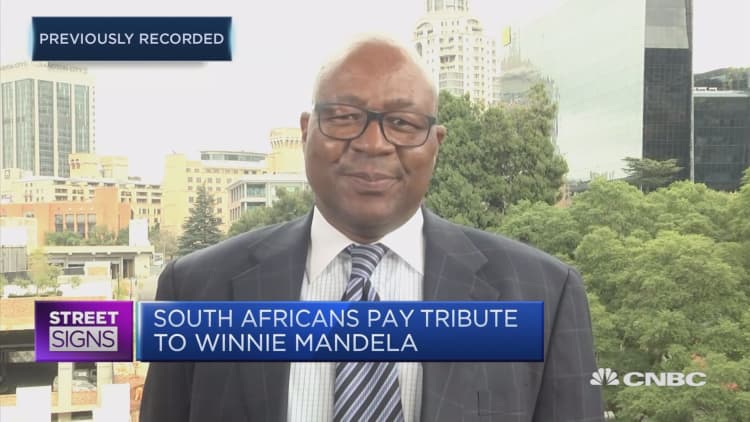
South Africa is notorious for its high crime rate, a reflection of its economic inequality and racial tension.
However, there is an economic dimension to solving the problem, a prominent business voice in the country told CNBC on Friday.
"We can't deal with crime as an isolated incident, we need to look at the totality," Kingsley Makhubela, chief executive of the nation's marketing platform Brand South Africa, said.
Transforming society, empowering people and dealing with underlying poverty all must be considered in tackling South Africa's crime, he added.
"We can't just look at it as an isolated social phenomena that you find in the country."
Only 30 percent of South Africans feel safe walking at night, according to a report by Statistics South Africa that measured the period from April 2016 to March 2017. This trend continues to decline.
Some 7.2 percent of South African households were victims of crime in the year recorded, with burglary accounting for the highest proportion of this, at 53 percent. Only 51 percent of victims reported the crime to the police.
"But I think we're responding very well," Makhubela said. "We're educating people how to deal with crime, because part of dealing with this crime — it's not only the responsibility of government — ordinary people have the responsibility to deal with it."
"I think we're better off this time around compared to a few years ago."
Makhubela was also positive about the fiscal management of new President Cyril Ramaphosa.
He described South Africa's need to deal with corruption and its state-owned institutions "that played a very important role in the economic development of the country, (but) there's a process now to transform and reform them."
Makhubela also referenced the slowdown in economic growth globally as impacting South Africa's sluggish domestic economy.
He said: "I'm glad that President Ramaphosa has taken concrete decisions to deal with some of the problems that we've had in the past."

